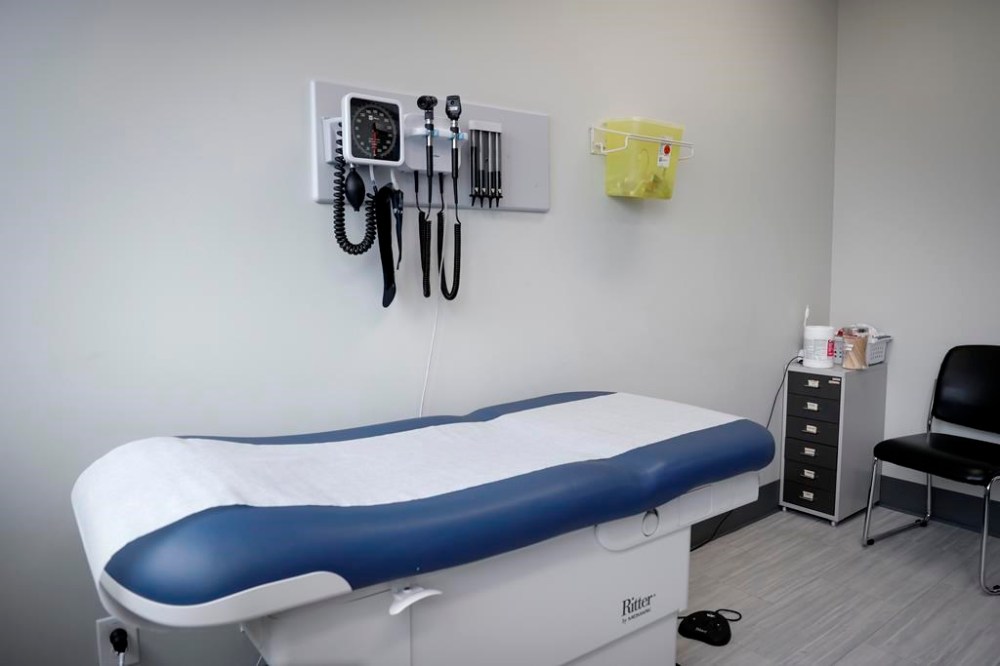Canada’s health-care system falls behind most peer countries: Report
Advertisement
Read this article for free:
or
Already have an account? Log in here »
To continue reading, please subscribe:
Monthly Digital Subscription
$0 for the first 4 weeks*
- Enjoy unlimited reading on winnipegfreepress.com
- Read the E-Edition, our digital replica newspaper
- Access News Break, our award-winning app
- Play interactive puzzles
*No charge for 4 weeks then price increases to the regular rate of $19.00 plus GST every four weeks. Offer available to new and qualified returning subscribers only. Cancel any time.
Monthly Digital Subscription
$4.75/week*
- Enjoy unlimited reading on winnipegfreepress.com
- Read the E-Edition, our digital replica newspaper
- Access News Break, our award-winning app
- Play interactive puzzles
*Billed as $19 plus GST every four weeks. Cancel any time.
To continue reading, please subscribe:
Add Free Press access to your Brandon Sun subscription for only an additional
$1 for the first 4 weeks*
*Your next subscription payment will increase by $1.00 and you will be charged $16.99 plus GST for four weeks. After four weeks, your payment will increase to $23.99 plus GST every four weeks.
Read unlimited articles for free today:
or
Already have an account? Log in here »
Hey there, time traveller!
This article was published 14/01/2025 (334 days ago), so information in it may no longer be current.
A new report says Canada’s health-care system has fallen behind international peers in access to care, equity and wait times, outperforming only the United States.
The not-for-profit think tank C.D. Howe Institute says Canada ranks ninth out of 10 countries evaluated, including the Netherlands and United Kingdom, who were top performers.
The comparative analysis shows Canada’s quality of care is relatively high, but accessing that care is a challenge.

The report is based on data collected from the Commonwealth Fund international surveys of patients, physicians and the general public, in addition to statistics from the World Health Organization, the Organisation for Economic Co-operation and Development and the Canadian Institute for Health Information.
All provinces and territories performed poorly, but Newfoundland and Labrador and Nunavut had the weakest results while Prince Edward Island, Quebec and Ontario performed the best.
Canada ranked the worst among its peers in timeliness, with the report citing surveys that show 47 per cent of respondents waiting two months or longer for an appointment with a specialist, and 59 per cent waiting the same duration for an elective surgery.
The institute conducted a similar analysis in 2018, which also found Canada’s health-care system ranked low, only ahead of the U.S., and France in some cases.
In equity Canada ranked seventh in the latest findings. Approximately one-quarter of Canadians with low or average incomes reported at least one cost-related barrier to accessing health care in the past year – double the rate of higher-income earners.
Affordability stood as a significant barrier to health care in most Atlantic provinces, Alberta, British Columbia and Yukon where many adults reported forgoing medications, and mental health services or homecare due to cost concerns.
In measures of health outcomes Canada fell slightly below average with the second-highest infant mortality rate, and second-highest 30-day-in-hospital mortality rate following a stroke.
The report says improving Canada’s health-care outcomes hinges on enhancing access to care, expanding drug and dental access and improving the affordability of mental health and homecare.
This report by The Canadian Press was first published Jan. 14, 2025.
Canadian Press health coverage receives support through a partnership with the Canadian Medical Association. CP is solely responsible for this content.

